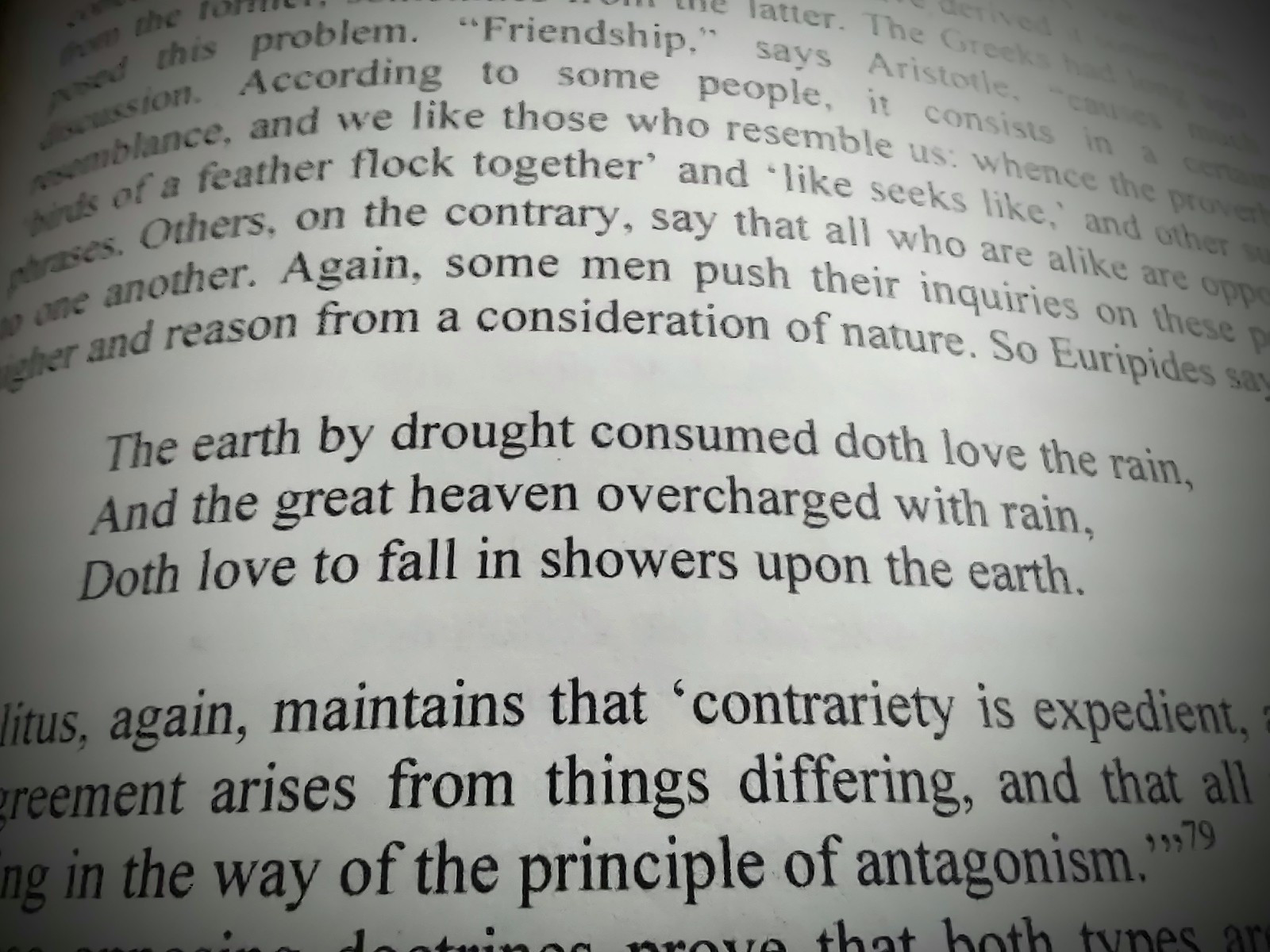HOME | DD
 lessico — Euripides
lessico — Euripides

Published: 2023-08-25 11:28:57 +0000 UTC; Views: 396; Favourites: 1; Downloads: 0
Redirect to original
Description
The influence of Anaxagoras on the mind of Euripides has already been noticed. It is seen still further in his love of physical science, in which he follows, to a large extent, the teachings of his master. He describes the world as originally in a state of chaos. Earth and Air were first evolved from the amorphous mass, and by their marriage begot all created things. Air is the "father of men and gods." Earth, "receiving in her womb the watery drops of rain, brings forth mortal men, brings forth herbage, and the tribes of wild beasts, whence with justice she is called the mother of all things." Nothing is destroyed; death is only a dissolution into primitive elements. "The earthy returns to earth, the ethereal is restored to the vault of heaven," and thus in course of time they both combine into new shapes and forms. All these theories are a reproduction of the teachings of Anaxagoras, and are expounded in verses of supreme beauty. But the atoms of Anaxagoras, infinite and homogeneous, which form the ultimate basis of matter, have no place in the descriptions of Euripides. On the other hand, he follows Empedocles in introducing Love as the great motive principle in creation. "It is Love which causes Earth to yearn for rain, when the parched ground, barren with drought, has need of moisture. It is Love which makes the sacred Heaven, swollen with rain, to sink into the lap of Earth. And when these twain are commingled, they beget and nourish all things." This brief account of the physical theories of Euripides illustrates the eclectic character of his speculations, and his predilection for everything which was grand, imaginative, and poetical.source: www.theatredatabase.com/ancien…





















